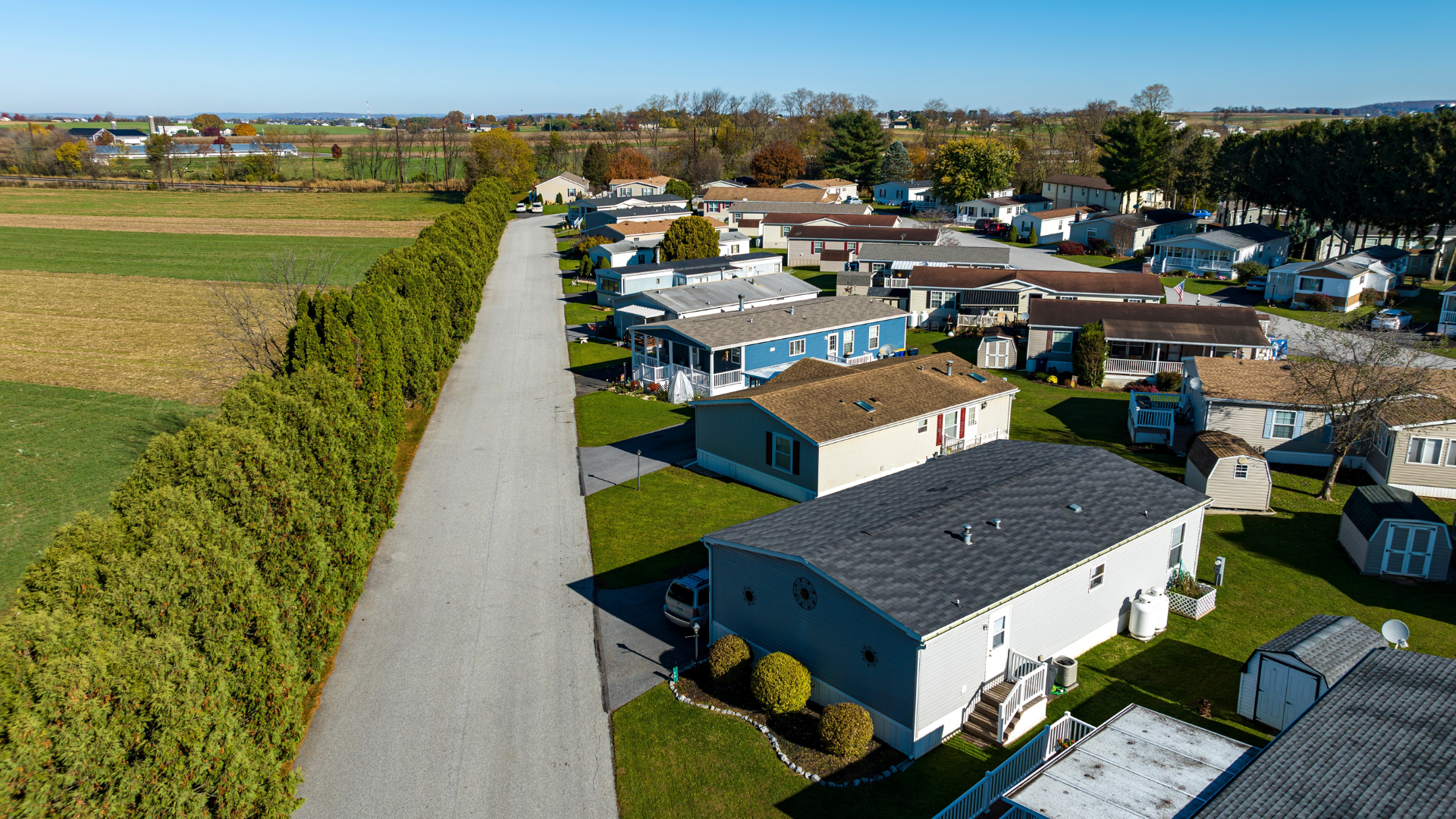
New tool tracks private equity ownership of manufactured housing communities across U.S.
PESP and Manufactured Housing Action (MHAction) have released the Private Equity Manufactured Housing Tracker, a first-of-its-kind tool monitoring private equity and hedge fund ownership of manufactured housing communities in the U.S.
June 11, 2024
The Private Equity Stakeholder Project (PESP) and Manufactured Housing Action (MHAction) have released the Private Equity Manufactured Housing Tracker, a first-of-its-kind tool monitoring private equity and hedge fund ownership of manufactured housing communities in the U.S.
Manufactured housing is a vital source of affordable housing for the over 21 million Americans who live in them, many of whom are on fixed incomes. Since the early 2000s, institutional investors such as private equity firms have increased their presence in the manufactured housing market. In 2020 and 2021, they accounted for 23% of all manufactured home purchases, up from 13% between 2017 and 2019.
As a result of the unique business model, manufactured home residents are uniquely vulnerable to exploitation: when park owners hike lot rents, add fees, neglect maintenance, or cut staff, homeowners often have no choice but to endure it. Across the country, residents at corporate-owned communities have reported rent increases of as much as 60% after private equity-owned landlords took over their parks as well as egregious maintenance issues. In multiple corporate-owned manufactured housing communities, residents endure frequent water shutoffs and in at least one case, have had to pay for undrinkable water.
“Each year the standard of living goes down as our rent goes up,” said Pamela Maxey, an MHAction resident leaderand resident of a Kalamazoo, MI community owned by private equity firm Brookfield Asset Management. “We have been asking for streetlights for five years. I haven’t felt safe outside of my home after dark in five years. We have numerous water leaks all over the park at any given moment and sewage backing up into people’s homes almost as often. And help is what we truly, desperately need.”
Key findings of the tracker include:
- Michigan has the second highest number of private equity-owned manufactured housing parks in the U.S., with 109 parks (33,115 lots). Other states in the top three are Florida and Texas.
- One in ten manufactured home parks in Michigan is owned by a private equity firm.
- Three of the four largest private equity firms in the U.S. own manufactured housing portfolios: Apollo Global Management (Inspire Communities), Blackstone (Treehouse Communities), and The Carlyle Group
- Almost half (49%) of the private equity-owned parks identified for this tracker were financed by Fannie Mae or Freddie Mac. In contrast, Fannie Mae or Freddie Mac financed just 9% of all the manufactured home parks in the U.S.
“It is shocking to see how many of these parks have been financed by Fannie Mae or Freddie Mac,” said Jordan Ash, Housing Campaign and Research Director at PESP. “Since the federal government sponsors Fannie and Freddie, the government should hold these corporate landlords accountable for their exploitation of tenants. Instituting strong tenant protections and creating more transparency around the ownership of manufactured housing communities would be a good first step.”
The Michigan legislature is currently considering aset of bills that would create basic protections for residents of manufactured housing and provide more transparency for owners and potential buyers of parks. The bills would ban park owners from imposing junk fees, padding utility bills for profit, and taking residents’ homes after eviction or rent hikes without compensation, practices that parks owned by institutional investors are known to engage in.
“Senate Bills 486 to 492 are vital to preserving one of the last sources of affordable housing here in Michigan. Countless seniors, veterans, disabled folks, and hardworking families desperately need these modest and common-sense protections to remain in their homes,” said Holly Hook, an MHAction resident leader and resident of a Swartz Creek, MI community owned by Havenpark Capital Partners.
Notably, the findings from the tracker show that Michigan has a disproportionate share of private equity-owned parks compared to the other top-three states, Florida and Texas, which outpace Michigan in population and number of parks. While private equity owns 2% of Texas parks and 5% Florida parks, one in ten Michigan parks are owned by private equity.
Last month, MHAction and the Institute for Operations Research and Management Sciences (INFORMS) Student Chapter at University of Michigan collaborated to create a “heat map” of manufactured housing communities (MHCs) across the state of Michigan. The project allows community members, local leaders and state decision-makers to see the scale of manufactured housing in the state. It also highlights the threat to a critical source of Michigan’s existing affordable housing if predatory investors are allowed to continue to prey on manufactured housing residents. Data for the map was collected from publicly available data (MHVillage) and the Michigan Department of Licensing and Regulatory Affairs’ (LARA) list of licensed manufactured housing communities. The heat map is generated by code and data that is publicly available on a GitHub repository that can be used as a starting point to replicate the same app for other states.
